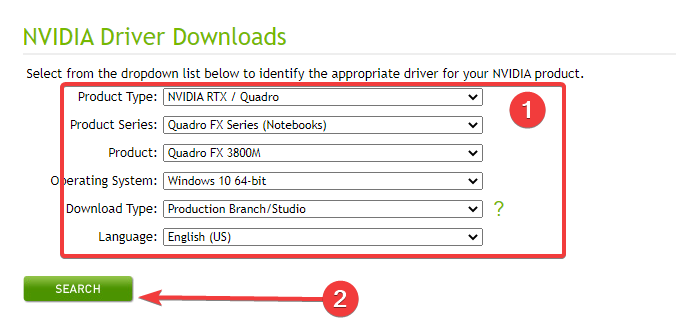 Technology peripherals
Technology peripherals AI
AI US$60,000 per capita: 2024 NVIDIA Scholarship list announced, five Chinese selected
US$60,000 per capita: 2024 NVIDIA Scholarship list announced, five Chinese selectedThis Friday, the list of candidates for the highly anticipated NVIDIA Scholarship was announced.
For more than two decades, the NVIDIA Graduate Fellowship Program has provided graduate students with outstanding work support related to NVIDIA technology. NVIDIA has awarded $6 million in grants to nearly 200 students to date, advancing research in areas such as machine learning, computer vision, robotics and systems programming.
This year’s scholarship program is designed to support 10 doctoral students conducting research in the field of computing innovation, with each receiving up to $60,000 in scholarships

The NVIDIA Scholarship is open to scholars from all over the world, and there is fierce competition every year. This year, there are more than 500 candidates, and five of the ten finalists are Chinese.
According to reports, the winners will enter NVIDIA for summer internships before the scholarship year. The work they participate in is at the forefront of accelerated computing - including deep learning, robotics, computer vision, and computer science. Projects such as graphics circuits, autonomous driving and programming systems.
NVIDIA Chief Scientist Bill Dally said that the recipients of the NVIDIA Scholarship are the most talented researchers in the world, and the scientific problems they are studying are of vital importance.
Ten inductees
The 2024-2025 scholarship recipients include:
Bailey Miller

From Carnegie Mellon University (CMU)
Research direction: Developing practical Monte Carlo methods for physical simulation to match the scalability and robustness of Monte Carlo rendering algorithms, focusing on designing accelerated random walk methods that are easy to differentiate, and using volumetric models to handle tricky and complex geometries.
The content that needs to be rewritten is: Nicklas Hansen

from California University of San Diego (UCSD), mentored by Xiaolong Wang and Hao Su.
Research direction: Develop data-driven world models to enable robots to understand and interact with the real world.
Payman Behnam

From Georgia Institute of Technology , mentored by Alexey Tumanov.
Research direction: The intersection of machine learning and systems dedicated to high-performance, low-latency and energy-saving design
Needs to be rewritten The content is: Reinhard Wiesmayr

from ETH Zurich, Switzerland
Research content: In wireless communication systems, research through machine learning-assisted signal processing methods
The content that needs to be rewritten is: Song Weige

Jia-Bin Huang and David Jacobs are from the University of Maryland, College Park Mentor
Research direction: Focus on generative models applied to images and videos, aiming to develop comprehensive methods for content generation, controllable human guidance and creation processes, and promotion of human participation Easy to interact interface
The content that needs to be rewritten is: Toluwanimi Odemuyiwa

From the University of California, Davis (UC Davis), mentored by John Owens.
Research direction: Design and develop end-to-end abstractions and frameworks for graph algorithms using tensor algebra languages, from platform-independent declarative descriptions of computation to platform-specific implementations
Yiming Li

from New York University, tutored by Chen Feng ).
Research direction: We are committed to developing robust, efficient and scalable artificial intelligence algorithms for 3D scene parsing and decision-making based on high-dimensional sensory input. At the same time, we will also organize large-scale data sets to effectively train and verify these algorithms for application on autonomous robots
Yue Zhao(Yue Zhao)

The tutor is Philipp Krähenbühl’s student from the University of Texas at Austin
Research content: Using machines Learning algorithms are trained on workstation-grade hardware and applied to everyday devices such as laptops and mobile devices for widespread use, training, and collaborative sharing
李志奇(Zhiqi Li)

The tutor is Tong Lu from Nanjing University
Research field: Exploring the development of autonomous driving perception technology with vision as the core
Zihao Ye’s name needs to be rewritten

from the University of Washington, tutored by Luis Ceze.
Research directions: machine learning compilation, basic model service system and sparse computing.
Other finalists
NVIDIA also announced the five finalists for the 2024-2025 scholarship. Their list is as follows:
Andrew Sauter, graduated from Georgia Institute of Technology
Bobby Venema Yogatama , from the University of Wisconsin Madison
Guanzhi Wang, from the California Institute of Technology (Caltech), mentored by Georgia Gkioxari and Yisong Yue.

##Kim Sehoon graduated from the University of California, Berkeley (UC Berkeley)
Xi Deng, from Cornell University, mentored by Steve Marschner.

We look forward to these researchers making their own contributions in different fields
In the meantime , as the top artificial intelligence conferences EMNLP and NeurIPS are approaching, Nvidia is recruiting interns. Jim Fan, senior scientist at NVIDIA and head of the AI Agent Group, said that this winter, NVIDIA has prepared the just-released GPU
 for everyone.
for everyone.
The above is the detailed content of US$60,000 per capita: 2024 NVIDIA Scholarship list announced, five Chinese selected. For more information, please follow other related articles on the PHP Chinese website!
 NVIDIA 控制面板无法在 Windows 11 中打开/工作问题修复Apr 13, 2023 pm 11:10 PM
NVIDIA 控制面板无法在 Windows 11 中打开/工作问题修复Apr 13, 2023 pm 11:10 PMNVIDIA 控制面板包含您可以调整的所有内容和设置,以提取显卡的全部功能。因此,当 NVIDIA 控制面板停止工作时,您无法更改许多想要更改的设置,除非您找到修复程序以再次制作 NVIDIA 控制面板。修复 1 – 杀死所有 NVIDIA 进程您必须终止所有 NVIDIA 进程并重新启动文件资源管理器进程。1. 尝试打开 NVIDIA 控制面板。Windows 将尝试启动 NVIDIA 控制面板。它不会打开。不用担心。2. 现在,只需右键单击 Windows 图标,然后点击“任务管理器”。4.
 NVIDIA 安装程序无法继续?4个简单的方法来解决它Jun 03, 2023 am 09:52 AM
NVIDIA 安装程序无法继续?4个简单的方法来解决它Jun 03, 2023 am 09:52 AMNVIDIA安装程序无法继续是一条错误消息,会阻止您为显卡安装驱动程序。无论您尝试在计算机上安装多少次,您几乎肯定会一遍又一遍地收到相同的消息。此外,此错误发生在各种驱动程序和Windows迭代中,表明存在多种潜在原因。也就是说,它不排除任何人,对于许多用户来说,解决问题可能是一种令人沮丧的体验。幸运的是,以下方法中的一种(如果不是更多)很有可能对您有效,因此请继续阅读以找出哪种方法最有效。即使驱动安装失败,在您下载并安装驱动后,安装操作系统的分区中也会创建一个NVIDIA文件夹。这是因为它会在
 NVIDIA控制面板打不开问题修复May 19, 2023 pm 03:22 PM
NVIDIA控制面板打不开问题修复May 19, 2023 pm 03:22 PM在Windows中,NVIDIA控制面板基本上是一种用于管理显卡中的图形驱动程序设置和NVIDIA实用程序的工具。显卡对于游戏、3D动画和渲染视频非常重要。所以,我们需要一个控制面板来管理显卡的设置。它将帮助用户更改显示质量、大小、方向等。有时由于使用了错误的图形驱动程序,控制面板无法打开或工作。每个图形适配器都有一个特定的图形驱动程序,因此选择正确的驱动程序将为您提供最佳的游戏优化。在某些情况下,系统中使用的防病毒软件可能会产生一些干扰。让我们看看解决此问题的一些方法NVIDIA无法
 在 Windows 11 上使用的最佳 Nvidia 驱动程序是什么?May 22, 2023 pm 04:12 PM
在 Windows 11 上使用的最佳 Nvidia 驱动程序是什么?May 22, 2023 pm 04:12 PMNVIDIA生产了许多业内最佳的显卡。多年来,它不断为PC游戏玩家、动画师、平面设计师、视频编辑和其他GPU密集型职业提供GPU。但是,您必须确保在您的操作系统上使用兼容的NVIDIA驱动程序。虽然Windows11具有适应性,但并非您在其他操作系统上使用过的所有驱动程序都可以正常工作。在这里,我们将分享与Windows11PC兼容的最佳NVIDIA显卡驱动程序。最后,您可以按照几个简单的步骤来纠正NVIDIA控制面板的问题,而不是打开.Windows11是否有N
 修复 Windows 11 中缺少的 NVIDIA 控制面板的 5 个技巧Apr 19, 2023 pm 05:10 PM
修复 Windows 11 中缺少的 NVIDIA 控制面板的 5 个技巧Apr 19, 2023 pm 05:10 PM几位NVIDIA显卡用户报告说,Windows11中缺少NVIDIA控制面板。造成这种情况的可能原因有多种,包括显卡驱动程序错误、软件过时、注册表子项和值丢失,或随机错误。除了提供对NVIDIA图形驱动程序设置的控制之外,该面板还允许您访问和使用您可能已安装在系统上的其他NVIDIA实用程序。建议您在获得运行显卡所需的驱动程序后立即下载并在您的设备上安装NVIDIA控制面板。该软件的使用对于那些使用3D应用程序或狂热的Windows游戏玩家特别有益。您可以详细了解您的系统在使
 修复:没有 Dc 水印 NVIDIA / 游戏 - 屏幕左上角的 Adobe 没有 DcApr 30, 2023 am 08:22 AM
修复:没有 Dc 水印 NVIDIA / 游戏 - 屏幕左上角的 Adobe 没有 DcApr 30, 2023 am 08:22 AM一些NVIDIAStudio驱动程序用户最近报告了在AdobePremierePro应用程序上看到“NODC”水印的问题。一些用户还报告说也看到了“YESDC”水印。但是,别担心。这都是由于NVIDIA核心文件中的bin文件损坏所致。因此,只需在文件资源管理器中找到该文件并删除损坏的文件,然后重新启动即可解决问题。或者,您可以只恢复默认的NVIDIA3d设置。按照这些修复程序快速解决问题。修复1–删除NVIDIAbin文件按照以下步骤从系统中删除n
 和TensorFlow一样,英伟达CUDA的垄断格局将被打破?Apr 13, 2023 pm 01:04 PM
和TensorFlow一样,英伟达CUDA的垄断格局将被打破?Apr 13, 2023 pm 01:04 PM十年来,机器学习软件开发的格局发生了重大变化。许多框架如雨后春笋般涌现,但大多数都严重依赖于英伟达的 CUDA,并在英伟达的 GPU 上才能获得最佳的性能。然而,随着 PyTorch 2.0 和 OpenAI Triton 的到来,英伟达在这一领域的主导地位正在被打破。谷歌早期在机器学习模型架构、训练、模型优化方面都具有很大优势,但现在却难以充分发挥这些优势。而在硬件方面,其他 AI 硬件公司很难削弱英伟达的统治地位。直到 PyTorch 2.0 和 OpenAI Triton 出现,机器学习
 英伟达发布ChatGPT专用GPU,推理速度提升了10倍May 13, 2023 pm 11:04 PM
英伟达发布ChatGPT专用GPU,推理速度提升了10倍May 13, 2023 pm 11:04 PM曾何几时,人工智能因为算力不足进入了长达数十年的瓶颈,GPU点燃了深度学习。在ChatGPT时代,AI因为大模型再次面临算力不足的问题,这一次英伟达还有办法吗?3月22日,GTC大会正式召开,在刚刚进行的Keynote上,英伟达CEO黄仁勋搬出了为ChatGPT准备的芯片。「加速计算并非易事,2012年,计算机视觉模型AlexNet动用了GeForceGTX580,每秒可处理262PetaFLOPS。该模型引发了AI技术的爆炸,」黄仁勋说道。「十年之后,Tr


Hot AI Tools

Undresser.AI Undress
AI-powered app for creating realistic nude photos

AI Clothes Remover
Online AI tool for removing clothes from photos.

Undress AI Tool
Undress images for free

Clothoff.io
AI clothes remover

AI Hentai Generator
Generate AI Hentai for free.

Hot Article

Hot Tools

MinGW - Minimalist GNU for Windows
This project is in the process of being migrated to osdn.net/projects/mingw, you can continue to follow us there. MinGW: A native Windows port of the GNU Compiler Collection (GCC), freely distributable import libraries and header files for building native Windows applications; includes extensions to the MSVC runtime to support C99 functionality. All MinGW software can run on 64-bit Windows platforms.

mPDF
mPDF is a PHP library that can generate PDF files from UTF-8 encoded HTML. The original author, Ian Back, wrote mPDF to output PDF files "on the fly" from his website and handle different languages. It is slower than original scripts like HTML2FPDF and produces larger files when using Unicode fonts, but supports CSS styles etc. and has a lot of enhancements. Supports almost all languages, including RTL (Arabic and Hebrew) and CJK (Chinese, Japanese and Korean). Supports nested block-level elements (such as P, DIV),

WebStorm Mac version
Useful JavaScript development tools

Atom editor mac version download
The most popular open source editor

ZendStudio 13.5.1 Mac
Powerful PHP integrated development environment






